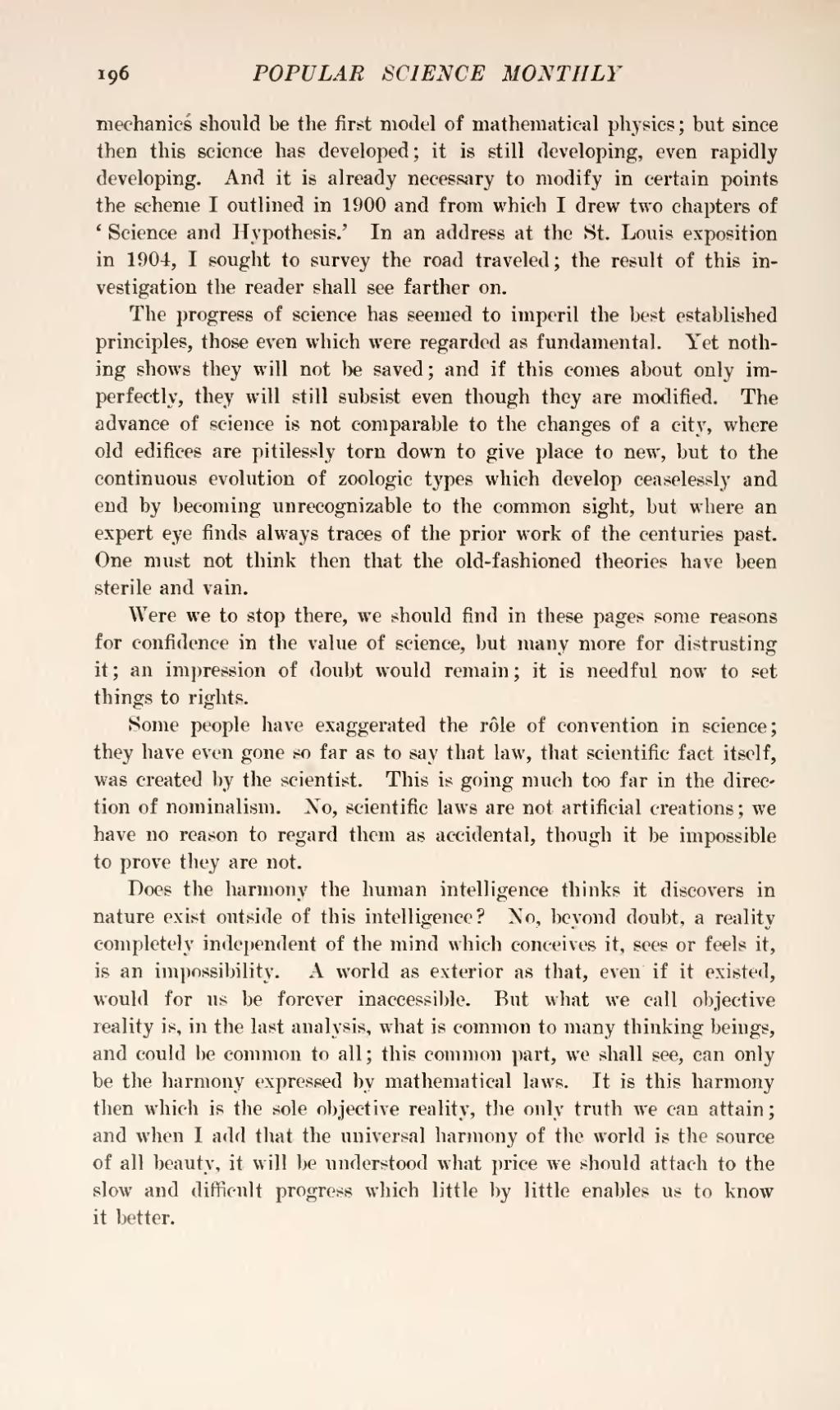mechanics should he the first model of mathematical physics; but since then this science has developed; it is still developing, even rapidly developing. And it is already necessary to modify in certain points the scheme I outlined in 1900 and from which I drew two chapters of 'Science and Hypothesis.' In an address at the St. Louis exposition in 1904, I sought to survey the road traveled; the result of this investigation the reader shall see farther on.
The progress of science has seemed to imperil the best established principles, those even which were regarded as fundamental. Yet nothing shows they will not be saved; and if this comes about only imperfectly, they will still subsist even though they are modified. The advance of science is not comparable to the changes of a city, where old edifices are pitilessly torn down to give place to new, but to the continuous evolution of zoologic types which develop ceaselessly and end by becoming unrecognizable to the common sight, but where an expert eye finds always traces of the prior work of the centuries past. One must not think then that the old-fashioned theories have been sterile and vain.
Were we to stop there, we should find in these pages some reasons for confidence in the value of science, but many more for distrusting it; an impression of doubt would remain; it is needful now to set things to rights.
Some people have exaggerated the role of convention in science; they have even gone so far as to say that law, that scientific fact itself, was created by the scientist. This is going much too far in the direction of nominalism. No, scientific laws are not artificial creations; we have no reason to regard them as accidental, though it be impossible to prove they are not.
Does the harmony the human intelligence thinks it discovers in nature exist outside of this intelligence? No, beyond doubt, a reality completely independent of the mind which conceives it, sees or feels it, is an impossibility. A world as exterior as that, even' if it existed, would for us be forever inaccessible. But what we call objective reality is, in the last analysis, what is common to many thinking beings, and could be common to all; this common part, we shall see, can only be the harmony expressed by mathematical laws. It is this harmony then which is the sole objective reality, the only truth we can attain; and when I add that the universal harmony of the world is the source of all beauty, it will be understood what price we should attach to the slow and difficult progress which little by little enables us to know it better.

